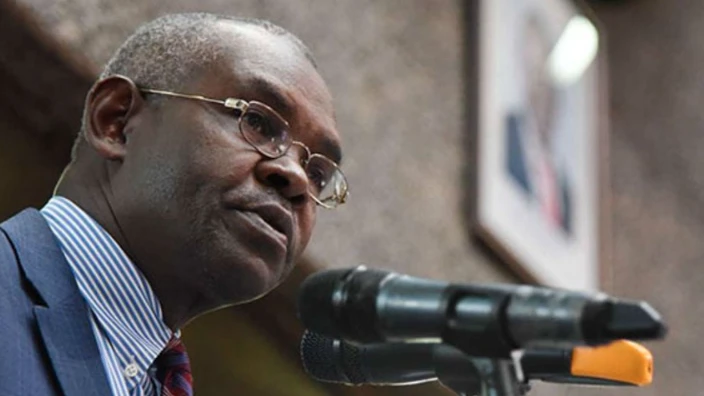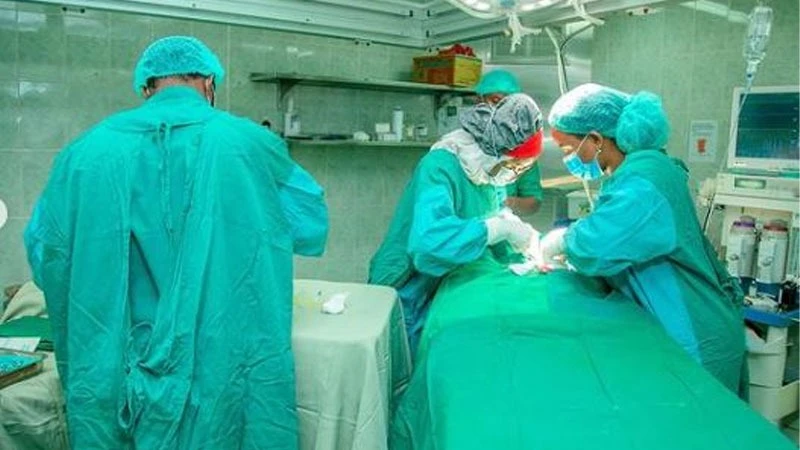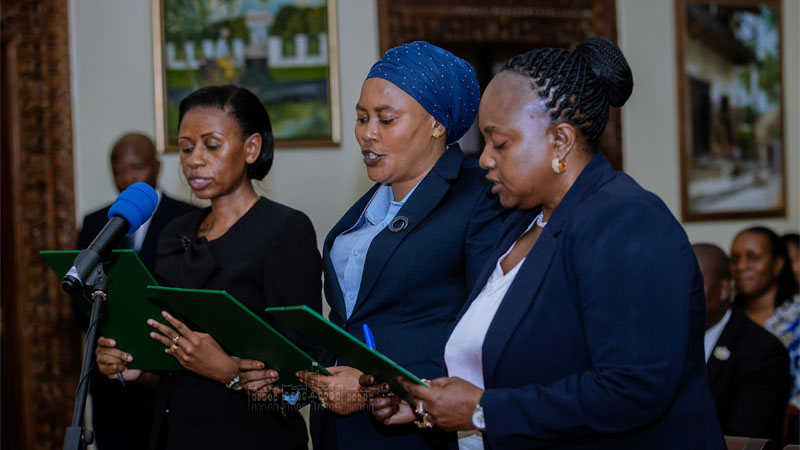TBT acts to enhance tea industry growth, support farmers

WITH concerns raised by the Tea Board of Tanzania (TBT) regarding the obstacles impeding the growth of the nation's tea industry, director Mary Kipeja is taking steps to reinforce law enforcement measures that guarantee smallholder farmers receive their payments promptly.
The TBT director highlighted these concerns during an exclusive interview with the journalist after her presentation at a tea forum in Dodoma recently, whereby her focus was on discussing the successes, challenges, opportunities, and strategies aimed at increasing productivity in the tea value chain.
She believes that delayed payments not only exacerbate the financial strain on smallholder farmers but also discourage their continued engagement in tea cultivation. This perpetuates a cycle of economic hardship within rural communities that are dependent on the tea industry.
“Between January 2023 and February 2024, the farmers are demanding a payment of 2.84bn/- from their produce that has not been settled,” she disclosed.
In addition to emphasizing the importance of prompt payment to small-scale farmers, Mary also expressed her apprehension regarding the drop-in prices in the global tea prices and the reluctance of both local and foreign stakeholders to participate in the Dar es Salaam tea auction.
With the auction being a crucial platform for trade and price discovery within the industry, the tepid involvement of stakeholders impedes the smooth functioning of the tea market and undermines the stability of the sector as a whole.
She was of the view that limited participation not only restricts market liquidity but also diminishes the competitiveness of Tanzanian tea in the global marketplace.
As a result, the devised strategy aims to ensure the active involvement of both local factories and foreign buyers in the Dar es Salaam tea auction.
Additionally, to empower farmers, the director stated, "We also aim to facilitate smallholder farmers in processing and selling tea directly at the auction. This will help reduce production costs by promoting farmers to form contracts with banks for the collective purchase of inputs from factories at lower prices."
Mary outlined additional steps they plan to take, including enhancing current factory technology and setting up new factories. Mobilization efforts are already in progress in the Tanga region and will continue in the southern highlands, with support from financial institutions such as CRDB and NMB.
Furthermore, she discussed the board's strategies to attract processors from neighboring countries to the Dar es Salaam auction as well as utilizing port facilities in the city.
Mary also indicated that TBT will facilitate the construction of five tea processing factories and two tea blending factories, with the target of establishing one factory each year.
"We will improve tea laws and regulations to create a conducive environment for tea investors and facilitate the construction of irrigation systems in smallholder farms," she said.
Furthermore, she mentioned that the first Dar es Salaam tea auction commenced on November 13, 2023, and thus far, 12 auctions have been held, with a total of 624,708kg of tea being brought to the auction.
Moreover, at least 428,945kg of tea, worth $298,461, has been sold during that entire period, with prices ranging from $0.65 to $1.00 per kg.
On his part, the Agriculture minister, Hussein Bashe, stated that the government will strengthen the tea industry by employing 200 extension officers to work with smallholder tea farmers.
"The government also plans to develop irrigation systems for tea farming to assist smallholder farmers of this crop in establishing irrigation infrastructure," Bashe said.
Chairperson of the Parliament standing committee on Agriculture, Industry, and Livestock, Deo Mwanyika, expressed his desire by stating that he would like to see more investors in the tea industry, as some of the current ones are not performing satisfactorily.
The tea sector in Tanzania has a rich history that dates back to the early 1900s when commercial tea cultivation began in the country.
The production of tea quickly gained momentum, and by the 1920s, Tanzania had established itself as a significant player in the global tea market. The industry continued to grow over the years, with smallholder farmers and large plantations contributing to the country's tea output.
Tanzania's tea sector is predominantly located in the Southern Highlands region, where the climate and altitude provide ideal conditions for tea cultivation. The sector is characterized by a mix of smallholder farmers and large estates, with the majority of tea being produced by smallholder farmers.
The tea industry plays a crucial role in the country's economy, providing employment opportunities for thousands of Tanzanians and generating revenue through exports. Exporting to markets such as the United Kingdom, Pakistan, and Egypt, Tanzania's tea sector plays a significant role in the global tea trade.
Top Headlines
© 2024 IPPMEDIA.COM. ALL RIGHTS RESERVED























